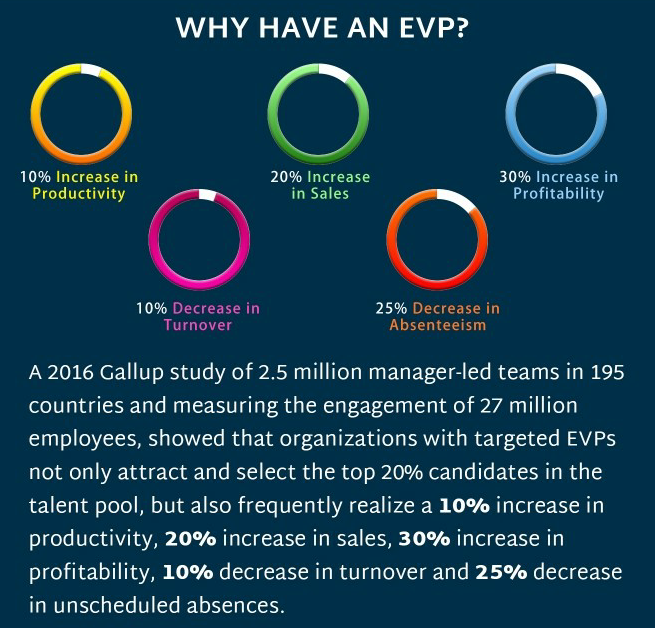Long gone are the days when organizations had the exclusive privilege to take their pick of talents and ask the almighty question: Why do you want to work with our company?
The tables have turned full circle!
These days, top talents have their pick of jobs. They are no longer waiting months to start a new job, they are moving between jobs at the speed of light, and they are asking prospective employers, “Why should I work for your organizations?”
As a business leader, how do you answer this critical question in a way that positions your company as the best place for talents to work?
And while you’re pondering this question, bear in mind that whatever answer you give must have a long shelf life because once you get talents onboard, the question shifts from why should I work with your organization to why should I stay with your organization?
It is essential to recognize that getting talent in the door is just the first step—the next challenge is ensuring that the same talent stays.
So, how do you get top talent in and keep them in?
The fact is that employees know that there is a ‘war for talent’ raging out there. It is a war driven by the increasing globalization of employment opportunities and the desire for a better work-life balance.
High performing individuals not only know that the demand for the best people far outweighs supply, but they also know that competitors are on poaching sprees. Unfortunately for organizations, most high-performers are all too willing to be poached.
Therefore, to succeed in today’s tight talent market, organizations must answer the talent acquisition and retention question with a compelling employee value proposition— one that is attractive enough to pull talents in and powerful enough to keep them with your organization.
Recommended Post: How to Write a Better Job Posting & Recruit Top Talents
What is an Employee Value Proposition (EVP)?
An employee value proposition (EVP) is the unique combination of benefits your company offers an employee in return for the skills, capabilities, and experience they bring to your company.
It is a reward package that you promise your employees (both intending and existing) in return for their dedication, talent, and high performance.
Gartner’s research found that the things that make up a compelling EVP for most people include: compensation, work-life balance, stability, location, and respect.
Essentially, an employee value proposition should provide incentives that not only reward hard work but create a supportive, inclusive work environment for all your employees.
An EVP must, therefore, describe much more than a combination of compensations and benefits. It must strike a delicate balance between the tangible and intangible rewards received by employees while showing what the organization expects in return.
An EVP is everything that matters to employees about their work and their organization. It comprises the things they boast of at social gatherings and business events.
A strong EVP promotes your values and creates the unique qualities, perceptions, and experiences that attract and retain talent. It is, in other words, the exact analogy of a product or corporate brand, but for internal, not external consumption.
Organizations typically demonstrate their EVPs in a combination of statements, substantial benefits, and intangible culture. While some companies have strong EVP statements, others utilize testimonials or blog posts to provide an appealing view of life at the organization.
All EVPs describe the compensation, perks, and benefits available to those who work at the company.
As Anne Mulcahy, former CEO of Xerox, puts it, your EVP strategy must demonstrate what you stand for and the benefits you promise to deliver. It must serve as a hard-to-duplicate competitive weapon.
Why Is EVP Critical to the Success of Your Organization?
An employee value proposition is to employees what a customer value proposition (CVP) is to customers.
As a compelling CVP tells the ideal customer why they should buy from you and not from the competition, a well-thought-out EVP tells your potential employees why they should accept to work for you. It also tells your top performers why they should stay with you long term and not go to the competition.
If your organization ever hopes to stand out from the competition and become an “employer of choice”, it must trigger candidates’ interest by having a substantial Employee Value Proposition.
The implication is that an EVP is the most crucial part of your company’s recruitment process because it tells the candidate why they should apply for a job with your company and what’s in it for them.
Therefore, just as your company painstakingly invests time and resources in creating powerful Customer Value Propositions (CVPs), your EVP should reflect the fundamental principles of your organization.
In addition, it should highlight who you are and what you offer to help your employees reach their full potential and deliver exceptional results.
The Dividends of Having a Compelling EVP

An EVP is a frequently overlooked asset that organizations can utilize to save money, improve recruiting, and prevent brain drain.
In yet another research by Gartner, “Organizations that effectively deliver on their EVP can decrease annual employee turnover by just under 70% and increase new hire commitment by nearly 30%”.
Furthermore, an employee value proposition that combines thoughtful benefits with fair and equal compensation will likely increase a company’s chances of bringing on diverse talent — and achieving significant results.
In a nutshell, having a strong employee value proposition will mean the following things for your organization:
- It will give your organization a competitive advantage that distinguishes it from competitors.
- It will position your company as an employer of choice and signal to the market that yours is a great place to work.
- It will increase your chances of attracting candidates likely to support the organization’s brand and values.
- When the grass is green in your company, your employees will be more engaged, motivated, and committed to the organization.
- A deep sense of commitment will inevitably birth employee advocacy for your organization. Without being prompted, your employees will become brand ambassadors for you.
The Trouble With Most Employee Value Propositions
Though many businesses are aware of their need for a compelling EVP, the challenge often lies in the doing.
Vague words are often spoken, but the EVP is not clearly defined and articulated. Or in organizations where the EVP has been defined and articulated, it is not adequately integrated into the company’s policies and practices.
It is imperative to know how to define, articulate, hone, communicate, embed and implement a powerful and effective EVP for your organization.
If your organization has an EVP in place, our EVP series offers an excellent opportunity to refresh, revise and re-emphasize its usage.
If, on the other hand, you don’t have a well-defined and clearly articulated EVP, we’ve put together five other articles to equip you with a step-by-step guideline and pragmatic framework that you can leverage to create and implement yours.
Please, follow these links to access them:
- 5 Fundamental Steps for an Exceptional Employee Value Proposition
- How to Diagnose an Existing Employee Value Proposition [With Case Study]
- How to Design and Develop an Employee Value Proposition that Works [With Case Study]
- How to Deliver Your Employee Value Proposition to Attract & Retain Top Performers [With Case Study]
- How to Weave Your Employee Value Proposition into Your Organisation’s DNA [With Case Study]
In summary,
If the turbulence of 2020 and 2021 have prompted your organization to rethink its employee value proposition, then you’re in good company.
Your employees are re-considering why they should remain with you, too.
If your approach to your EVP has been fraught with inconsistencies, persisting in that path will be doing your organization and its reputation more harm than good. Please send us an email at Workforce Africa to begin talks on how we can work with your company to create a compelling EVP.






